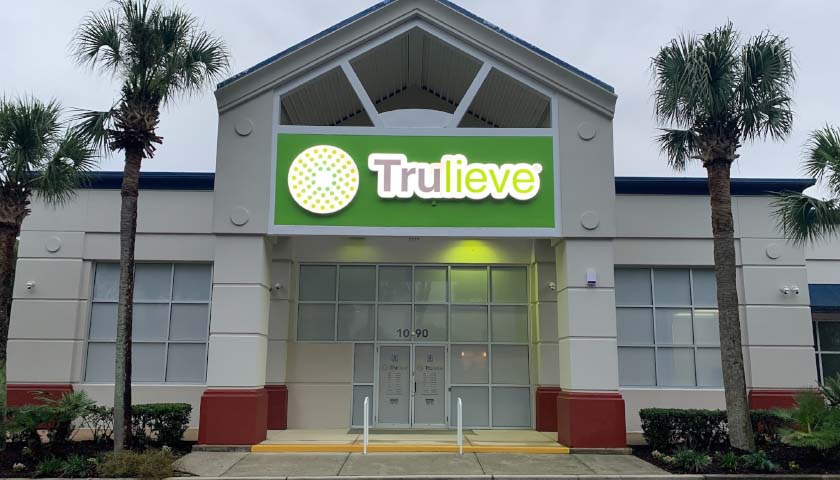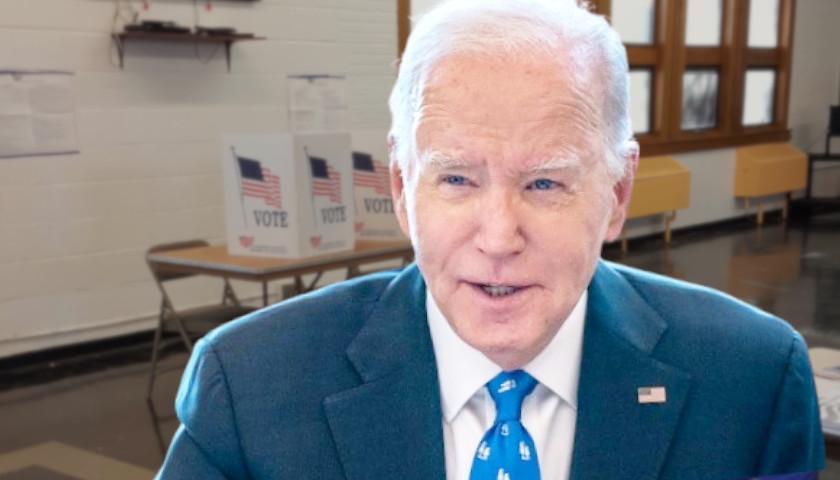by Jackie Mitchell
Smart & Safe Florida, a campaign supporting a ballot initiative to legalize marijuana in Florida, has collected 967,528 valid signatures, exceeding the 891,523 valid signatures needed to be placed on the ballot in 2024.
State officials confirmed on June 1, that the campaign had submitted enough valid signatures to qualify for the ballot and had met the signature distribution requirement mandating that signatures equaling at least 8% of the district-wide vote in the last presidential election be collected from at least half (14) of the state’s 28 congressional districts.
The initiative would legalize marijuana for adults 21 years old and older. Individuals would be allowed to possess up to three ounces of marijuana (about 85 grams), with up to five grams in the form of concentrate. Existing medical marijuana treatment centers would be authorized under the initiative to sell marijuana to adults for personal use. The Legislature could provide by state law for the licensure of entities other than existing medical marijuana treatment centers to cultivate and sell marijuana products.
The campaign has raised $38.5 million, all from Trulieve Cannabis Corp., a marijuana business that operates in several states, including Florida. According to campaign reports covering information through April 30, Smart and Safe Florida had paid $23.07 million to Axiom Strategies and Vanguard Field Strategies for signature gathering.
Across all states with an initiative process, the average cost of a petition drive increased 297% from 2016 to 2022. So far, the cost of this signature drive is 463% more expensive than the average signature drive cost in Florida in 2016. The cost of running a successful initiative signature drive in Florida was $4.1 million in 2016, $4.6 million in 2018, and $6.7 million in 2020. No initiatives qualified for the Florida ballot in 2022. Marijuana legalization initiative campaigns in four states spent between $68,000 and $3.66 million on signature drives for 2022 initiatives.
In 2016, voters in Florida legalized medical marijuana through a ballot initiative, which was approved by a vote of 71.32% in favor and 28.68% opposed.
In Florida, proposed initiatives are reviewed by the state attorney general and state supreme court after proponents collect 25% of the required signatures across the state in each of one-half of the state’s congressional districts (222,898 signatures for 2024 ballot measures). After these preliminary signatures have been collected, the secretary of state must submit the proposal to the Florida Attorney General and the Financial Impact Estimating Conference. The attorney general is required to petition the Florida Supreme Court for an advisory opinion on the measure’s compliance with the single-subject rule, the appropriateness of the title and summary, and whether or not the measure “is facially valid under the United States Constitution.”
The measure qualified for a state Supreme Court review after collecting 25% of the total required signatures on April 6. On May 15, Florida Attorney General Ashley Moody petitioned the Florida Supreme Court for an advisory opinion on the measure. Moody wrote that she believes “the proposed amendment fails to meet the requirements” and that she plans to “present additional argument through briefing at the appropriate time.” Briefings in the case are due by June 12.
In 2021, Moody argued against a proposed 2022 initiative to legalize marijuana sponsored by Make It Legal Florida. Moody argued that the ballot title was misleading and inaccurately stated that the measure would legalize something that is illegal under federal law.
The Florida Supreme Court ruled 5-2 that the measure could not appear on the 2022 ballot. The court wrote, “A constitutional amendment cannot unequivocally ‘permit’ or authorize conduct that is criminalized under federal law. And a ballot summary suggesting otherwise is affirmatively misleading.” Justices Jorge Labarga and Alan Lawson dissented. Lawson said, “Because the ballot summary in this case complies with the constitutional and statutory requirements by which we are to judge ballot summaries, I would apply our precedent and approve this measure for placement on the ballot.”
The ballot language for the proposed 2024 initiative includes a sentence stating, “Applies to Florida law; does not change, or immunize violations of, federal law.”
In Florida, constitutional amendments require a 60% supermajority vote of approval to pass. This requirement was added to the state constitution through voter approval of Amendment 3 in 2006. Since then, nine constitutional amendments (including a 2014 medical marijuana initiative) received a majority of votes in favor but failed to reach the 60% threshold and were therefore defeated.
As of June 1, 23 states and Washington, D.C., had legalized the possession and personal use of marijuana for recreational purposes. In 12 states and D.C., the ballot initiative process was used to legalize marijuana. In two states, the legislature referred a measure to the ballot for voter approval. In nine states, bills to legalize marijuana were enacted into law. The average yes vote was 57.86% and the average no vote was 42.21% with an average margin of victory of 15.65%.
Of the 15 marijuana legalization ballot measures, four received a vote of approval of 60% or higher. The measure with the highest margin of victory was Washington, D.C.’s 2014 initiative, which was approved by a vote of 70.06% to 29.94% for a margin of victory of 40.12%. The measure with the lowest margin of victory was Maine’s 2016 initiative, which was approved by a vote of 50.26% to 49.74% for a margin of victory of 0.52%.
– – –
Jackie Mitchell is a contributor to The Center Square.
Photo “Trulieve” by Trulieve.





